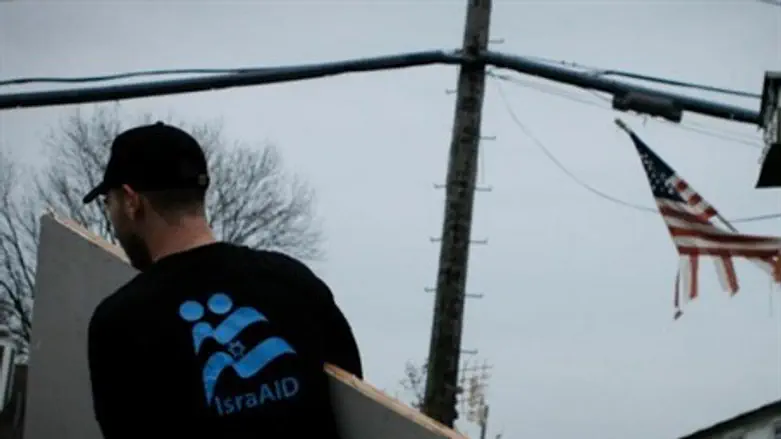
The international community is in the midst of racing as many rescuers to Nepal as humanly possible right now. As of the time of this writing, current estimates place the number of dead at well above 1,800 people. It is still unclear how many are injured or how many more people might be missing from the total count. As the situation changes rapidly on the ground, Israel is setting an international precedent with an immediate and relatively large response given the size and resources of the country.
Later today, Israel will send at least two jumbo jets worth of supplies and rescue workers to Kathmandu, the Nepalese capital. One of the organizations that will be represented on that flight is IsraAID, Israel's main international aid organization led by Founding Director Shachar Zahavi.
"We already have an emergency team in place and hopefully well put them on a plane later on response," Zahavi told Arutz Sheva this morning. "Just like in Haiti and in other places we have worked, it has medical aspects, opening up field hospitals parallel to those of the IDF. Of course, like in Haiti we'll do anything in our power to coordinate our efforts with the IDF and the Israeli Government."
The situation is still murky. Zahavi says it usually takes a few days for the full picture to become clear to survivors and aid workers. Right now, all is known is that there is immense damage to infrastructure and the number of affected is in the thousands. The earthquake occurred in an active seismic area, in the highest area of the world. The New York Times reported overnight that an avalanche on Mt. Everest - which rests on the Nepalese-Indian border - had stranded dozens of climbers, prompting a helicopter rescue mission.
"The problem is it is still the first 24 hours. You start to get the real idea and see the full picture after about three or four days. Everyone now is in a panic. The local government is appealing to the international community. People in places like the UN are just starting to map things out."
As of now, there are still several Israeli tourists and backpackers unaccounted for from an estimated 2,000 Israelis who were in the country at the time the quake struck.
"We're also sending some psychologists and planning to open some child-friendly spaces for kids," says Zahavi. "The materials we provide depend on the amount of funding we receive. A large amount of funding would mean a lot more supplies: cooking utensils, blankets stuff like that."
IsraAID anticipates expanding its efforts widely in the coming days, building off the experience it has gained in rescue operations like it launched following Haiti's great earthquake in 2010.
"In the first phase, we are sending between 10 and 12 people, but it depends on the need. Then we will increase and expand."
In Haiti also, the organization started with only a dozen people. However, it quickly grew. "22 Professionals treated over 3,700 people in 27 days, and provided psychological care to hundreds more" according to IsraAID's website.
"We're still operating in Haiti actually!" exclaims Zahavi. "At its peak, we had about 70 people." Within five months of the 2010 quake, IsraAID launched the Léogâne Educational Access Project in three community centers near the epicenter of the quake. Other projects include Haiti Grows to address food security and help for Haitians affected by domestic violence.
All these efforts grew substantially in the wake of the 2010 quake. It is still unclear what long-term needs the Nepalese people will have, but Zahavi says IsraAID will respond to the requests for help from Nepal's government.
"The similarities are getting there," Zahavi says between Haiti and Nepal, but stressing it was still early in the response to make any more precise parallels. "The infrastructure is also very problematic. Getting from one place to another because the roads are totally destroyed will be tough."
Zahavi says the $1 million fundraising effort is a global campaign that was launched just last night that will be open to donors in the United States and in the United Kingdom, among other countries. He hopes that despite the odd weekend timing of the quake when many people pay less attention to current events around the world, that Israelis and the Jewish community around the world will heed the call.
"The situation there that usually refer to disaster relief in time frame of 2 to 3 to 4 months. Usually after a disaster, you really focus around efforts that would take at least that amount of time to succeed. To provide the things that we just mentioned we will need that monetary figure."
Zahavi and IsraAID are requesting rapid donations for their efforts in Nepal, which they expect to grow very quickly as news develops about the scope of the quake.
Donate here, at http://www.globalgiving.org/projects/emergency-relief-for-earthquake-struck-nepal/.
